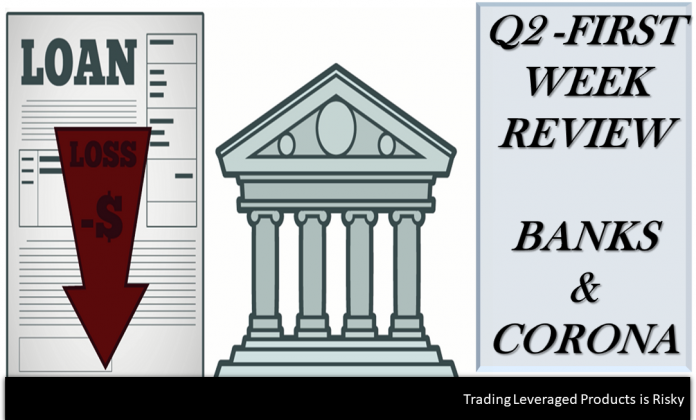The first week of Earnings season is over. Income reports usually start with financial companies, as in the current season. Last week, the reports were from a number of the digital banking giants, Pepsi and Netflix attracted the attention of many investors. In this brief review, we will see what happened last week.
Pepsi was first. After lockdown restrictions increased in the second half of the last quarter, creating a crisis for many companies, some used it as an opportunity – beverage producers were one of them, and this included Pepsi. Because people stayed home, they had more sales during the epidemic as more people were eating, drinking and watching movies. Exactly the same reason that helped Netflix, the largest online movie platform. However, the second quarter was slightly different.
Netflix reported a 15.77 million increase in paid subscribers worldwide for Q1, as restrictions eased and reopening’s improved, while Pepsi managed to maintain its market share and increase revenue. For Netflix, that seems to mean lower expectations for new subscribers, especially for the second half of the year.
| Date | Company | Forecast | Actual Results | ||
| EPS ($) | EPS $ | Revenue ($) | PROFIT ($) | ||
| 13. July | PepsiCo Inc. | 1.25 | 1.32 | 15.95B | 1.65B |
| 14. July | Wells Fargo & Co. | -0.2 | -0.66 | 8.3B | -2.38B |
| 14. July | JPMorgan Chase & Co. | 1.04 | 1.38 | 22.51B | 4.69B |
| 15. July | Goldman Sachs | 3.78 | 6.26 | 11.71B | 2.42B |
| 16. July | Netflix Inc. | 1.81 | 1.59 | 6.15B | 720.2M |
| 16. July | Bank of America Corp. | 0.27 | 0.37 | 17.21B | 3.53B |
| 16. July | Johnson & Johnson | 1.49 | 1.67 | 18.34B | 3.63B |
| 16. July | Morgan Stanley | 1.12 | 1.96 | 13.41B | 3.2B |
The banks are the main players in government stimulus packages. Like the government, they always consider their long-term plans as more important than short-term ones, and so they were expecting to earn less for the current quarter, especially after the Fed cut interest rates sharply overnight. Net income fell by $5 billion (10%) at four major US banks, according to Reuters.
On the other hand, as mentioned in the case of short-term and long-term income, what we have been facing in recent months has been forcing people to have short-term deposits and even more so in the form of cash in the bank, this is not in the interest of the banks because they can not make long-term investments with their liquidity, and in the short term, it is deadly for them, and this one of the reasons why banks’ shares fell, even though most of them met expectations, as you can see in the chart. However, as tensions and fears subside, banks are shifting some of this capital to higher-yield securities, which generates revenue for them. So in general nothing has changed, only the path has changed a bit.
Click here to access the financial calendar
Ahura Chalki
Market Analyst
HotForex
Disclaimer:This material is provided as general marketing communication with the aim of information only and not as independent investment research. This communication does not contain investment advice or recommendations or requests with a view to buying or selling any financial instruments. All information presented is from trusted, reputable sources. All information that contains indications of past performance is not a guarantee or a reliable indicator of future performance. The user must realize that all investments in Products with Leverage have a certain degree of uncertainty and that all investments of this kind involve a high level of risk for which the obligations and responsibilities are solely borne by the user. We are not responsible for losses arising from any investment made based on information provided in this communication. Reproduction or further distribution of this communication is prohibited without our prior written permission.
Risk Warning: Trading Leverage Products such as Forex and Derivatives may not be suitable for all investors because they carry a high level of risk to your capital. Before trading, please ensure that you fully understand the content of the risks involved, taking into account your investment objectives and level of experience and, if necessary, seek advice and input from independent parties.




















